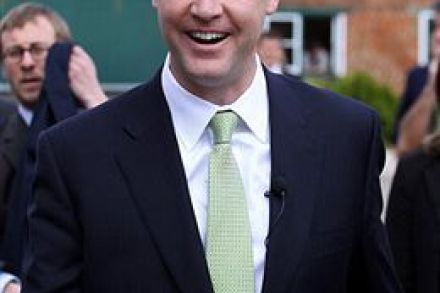Numbers which show why the TV debates are priceless for Nick Clegg
How valuable was the TV debate to the Lib Dems? Well, we’ve seen the poll numbers, of course. But the Electoral Commission has just released some figures which shine a different light on proceedings. They show that the Tories received party donations totalling £1.46m in the first week of the campaign. Labour, nearly £800k. And the Lib Dems were way, way behind on £20,000. So, Clegg & Co. are heavily outgunned financially – but they’ve still had the biggest upsurge in publicity and popularity. True, donations to the Lib Dems have risen dramatically since the TV debate – but it’s still unlikely that they’ll reach Tory, or even Labour, levels












